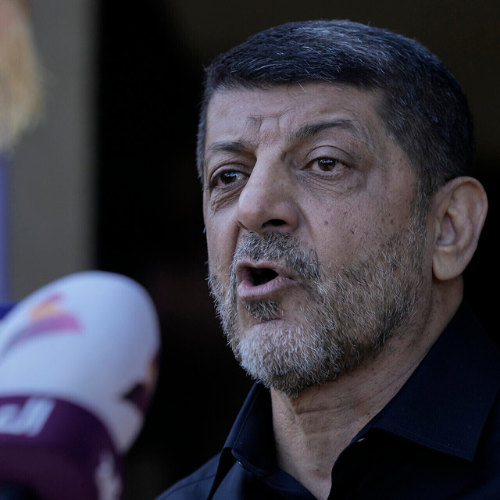A powerful Israeli airstrike in Beirut has killed one of Hezbollah’s key figures, Mohammed Afif. He was the media relations chief for the militant group, and his death marks a significant moment in the ongoing conflict between Israel and Hezbollah. The attack, which took place on Sunday, also targeted the headquarters of the Syrian Ba’ath Party in central Beirut, Lebanon’s capital. Hezbollah has confirmed Afif’s death, although Israel has yet to officially acknowledge the killing.
The Attack and its Target
The Israeli airstrike hit a key building in central Beirut, the capital of Lebanon, on Sunday. The building was known to house the headquarters of the Syrian Ba’ath Party, an organization with close ties to Hezbollah. The strike specifically killed Mohammed Afif, a top figure in Hezbollah’s media operations. Afif was the head of media relations for the group, and he was widely known for managing the group’s television station, Al-Manar, as well as for hosting press conferences that often provided updates during the ongoing conflict with Israel.
While Hezbollah has confirmed Afif’s death, Israel has not yet made a public statement regarding the strike’s success or the killing. Israel has, however, previously launched similar airstrikes aimed at top Hezbollah leaders, and this attack fits into that pattern of targeting key figures within the group.
Who Was Mohammed Afif?
Mohammed Afif was a prominent member of Hezbollah, best known for his work as the chief spokesperson and as a manager for the group’s media arm. His role was crucial in keeping the public updated, especially when it came to the ongoing battles between Hezbollah and Israel. Afif often hosted press conferences where he would provide information about Hezbollah’s activities and updates on the conflict. He was seen as one of the main voices of Hezbollah, offering the group’s version of events to both the media and its supporters.
Israel’s Startling Bunker Discovery Exposes Hezbollah’s $500 Million Hidden Wealth
Before becoming the head of media relations for Hezbollah, Afif had also been in charge of Al-Manar television, the group’s news channel. Al-Manar is known for broadcasting content that supports Hezbollah’s political and military activities. Under Afif’s leadership, the channel grew in importance as a tool for spreading Hezbollah’s messages, especially during periods of heightened conflict.
In recent weeks, Afif had made public statements about Hezbollah’s military readiness. He had claimed that the group had enough weapons to continue a “long war” against Israel, hinting at Hezbollah’s preparedness for an extended conflict. This made him an even more significant figure in the eyes of Israeli officials, who view Hezbollah as a dangerous adversary.
The Impact of the Killing
Afif’s death is part of a broader Israeli strategy to weaken Hezbollah by targeting its leadership. Israel has carried out similar strikes in the past, seeking to dismantle key parts of Hezbollah’s operations and eliminate important figures within the group. The killing of Afif is a part of this ongoing effort to disrupt Hezbollah’s ability to communicate and coordinate.
Israeli Airstrikes in Beirut Target Hezbollah’s Financial Backbone Al-Qard al-Hassan
The strike also highlights the continuing tension between Israel and Hezbollah. While Hezbollah has long been a powerful force in the Middle East, Israel has repeatedly stated that it will take action against the group whenever it deems necessary. Hezbollah, on the other hand, has vowed to continue its resistance against Israel, making the situation increasingly volatile.
On the same day of Afif’s killing, there was another development in the region when three people were arrested in Israel for throwing flares at the residence of Prime Minister Benjamin Netanyahu. This incident highlights the broader tensions in the region, where political and military conflicts often intersect with acts of protest and resistance.
In the aftermath of the strike, Hezbollah is likely to respond in some way, although the specifics of any response remain uncertain. The group has been involved in several conflicts with Israel in the past, and this latest attack on one of its leaders could lead to further escalation.
As the situation develops, the focus remains on the ongoing struggle between Hezbollah and Israel, with both sides continuing to try to gain the upper hand. The killing of Mohammed Afif is just one chapter in this long and complicated conflict.


